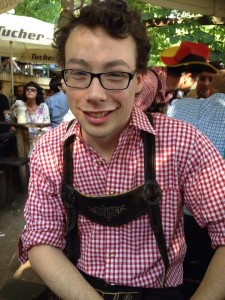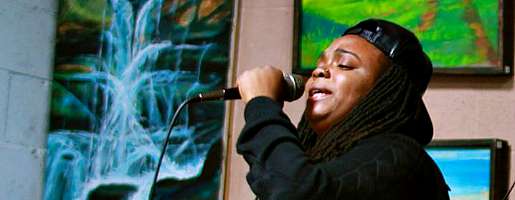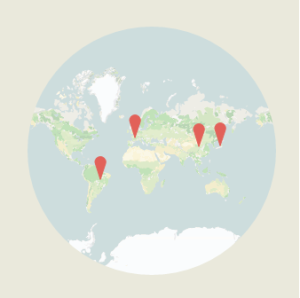What did you learn from your Fulbright experience?
 I received an English Teaching Assistantship from the Fulbright Program, which provides funding for students, teachers, and professionals to work, teach, or do research abroad. I taught secondary English at two college-prep schools (called Gymnasium) in Nuremberg, Germany. I was assigned 14 different classes each roughly 20-30 students in size, and I was mainly involved in sparking discussion with and creating/giving lessons to these classes. We talked about a huge variety of topics related to American culture/history/ literature; everything from politics and gun control to rap music and the civil rights movement.
I received an English Teaching Assistantship from the Fulbright Program, which provides funding for students, teachers, and professionals to work, teach, or do research abroad. I taught secondary English at two college-prep schools (called Gymnasium) in Nuremberg, Germany. I was assigned 14 different classes each roughly 20-30 students in size, and I was mainly involved in sparking discussion with and creating/giving lessons to these classes. We talked about a huge variety of topics related to American culture/history/ literature; everything from politics and gun control to rap music and the civil rights movement.
The biggest thing I learned was the direction I wanted to take in life moving forward. Since I was only giving lessons 12 hours per week (and always had Friday off!), I had a lot of time to explore my interests and figure out what I actually enjoyed and what I merely tolerated. That isn’t strictly related to the program itself, but it was the biggest thing I took away from the experience. From the experience directly, the biggest takeaway was probably how differently people from around the world understand their role in society. Germans are much more supportive of governmental activities to help the poor, even if that means much higher taxes; there’s more of a consensus that these programs benefit everyone in the long run. This isn’t so much the case here in the U.S, but living in a different culture, with Germans, I learned that this isn’t the default, that maybe these values are social constructs we have created and we can change.
Why should Berea students apply for the Fulbright?
There are a few reasons I think Berea students should apply for a Fulbright. First, it really is a once in a lifetime opportunity. I was able to visit 6 different countries and probably almost 50 cities during my 10 months abroad. All on my (roughly) $1100 a month stipend! Most students with a Berea background simply don’t have the resources to make this happen, I know I wouldn’t have otherwise. This brings me to my second point, Berea students have a unique advantage in the application process: we’re diverse (by Fulbright’s standards)! We represent a niche of applicants that the Fulbright program desperately lacks, people of color and those from low socio-economic backgrounds (this is purely based on my assessment of the people I met through the program).
Any wisdom you would like to offer them?
If you’re considering a program like this, I can’t recommend it enough. It was an astounding experience that showed me things about the world and myself that it would have been hard to discover otherwise. Play to your strengths in your application, have everyone and their brother/mother/sister read over it, go to the CTL, and overall just take the application process very seriously. Fulbright is a highly regarded fellowship/assistantship, and competition is fierce. That being said, I think Berea students are great applicants. I did it, and I think you can too. #fulbrightfriday #bereaabroad
If you want to apply, September 30 is Berea’s campus deadline. Click here for more information.
By Kerstin Wright, Center for International Education Education Abroad Team

 This year the Thomas J. Watson Foundation awarded 50 fellowships in the amount of $30,000, along with college loan assistance and an insurance allowance to each recipient. The awardees come from a small group of private liberal arts colleges and universities across the United States. Berea College is the sole school in Kentucky that can nominate students.
This year the Thomas J. Watson Foundation awarded 50 fellowships in the amount of $30,000, along with college loan assistance and an insurance allowance to each recipient. The awardees come from a small group of private liberal arts colleges and universities across the United States. Berea College is the sole school in Kentucky that can nominate students.